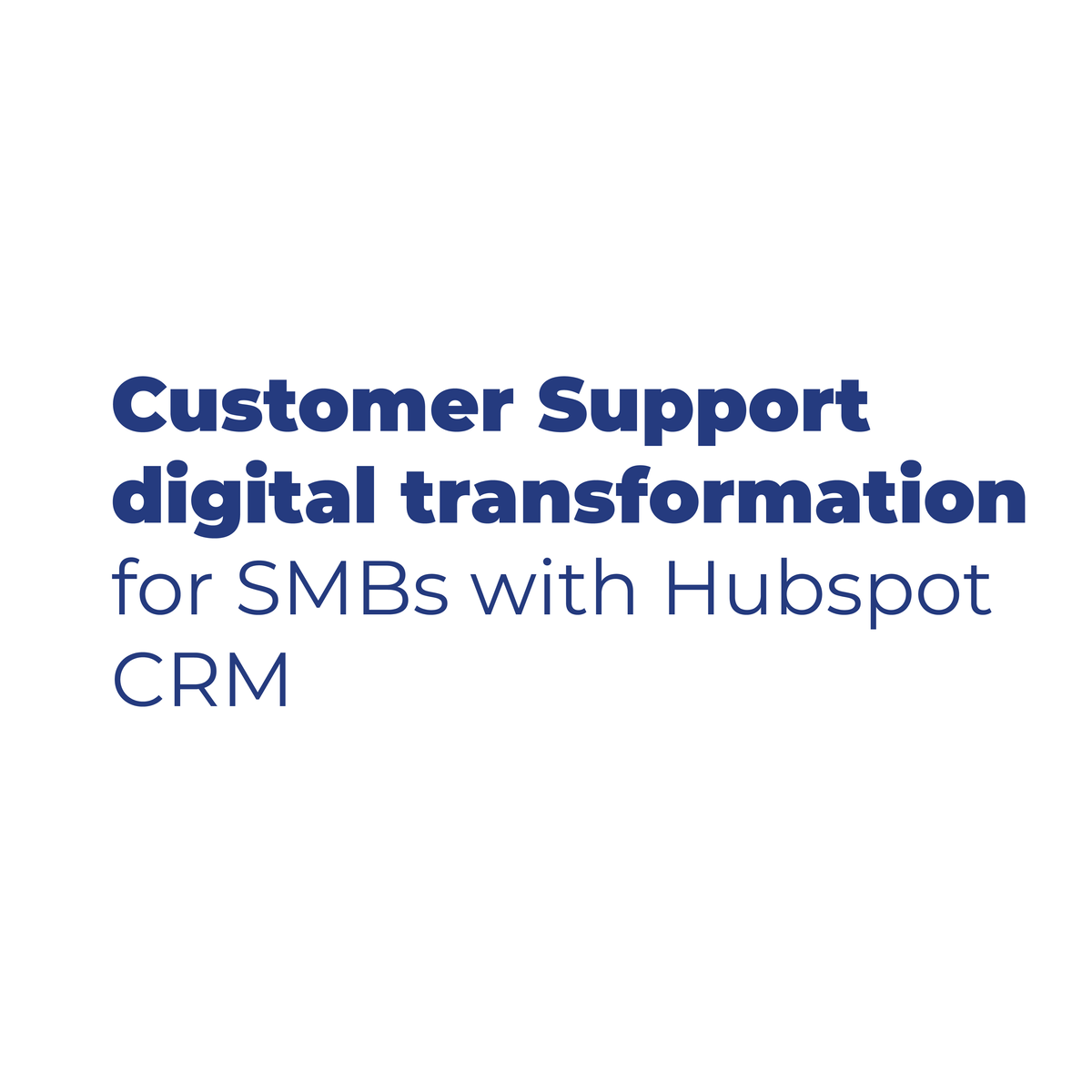CRM Manager
CRM Manager: Steering Customer Relationships in the Digital Age
A Customer Relationship Management (CRM) Manager plays a pivotal role in how organizations interact with their customers. At its core, this position involves overseeing the strategies, technologies, and processes used to manage and analyze customer interactions and data throughout the customer lifecycle. The goal is simple yet profound: improve business relationships with customers, assist in customer retention, and drive sales growth.
Working as a CRM Manager can be deeply engaging. You'll often find yourself at the intersection of technology, marketing, sales, and customer service, using data to uncover insights that shape business decisions. It's a dynamic field where you can directly influence customer satisfaction and contribute visibly to the company's bottom line, making it an exciting prospect for analytical and strategic thinkers.
The Strategic Importance of CRM Management
Understanding the role of a CRM Manager goes beyond just managing software. It's about integrating customer relationship strategies deeply into the overall goals of an organization.
Aligning CRM with Organizational Objectives
A CRM system is more than a digital address book; it's a strategic asset. The CRM Manager ensures that the CRM platform and associated processes support key business objectives, whether that's increasing market share, enhancing customer loyalty, or improving operational efficiency. They work across departments to align CRM activities with broader company goals.
This alignment involves understanding the specific needs of different teams—sales, marketing, customer service—and configuring the CRM system to meet those needs effectively. It requires translating high-level business strategies into actionable CRM workflows and metrics.
Effective CRM strategy ensures that every customer interaction is captured, analyzed, and leveraged to move the business forward. It helps create a unified view of the customer, breaking down silos between departments and fostering a customer-centric culture throughout the organization.
Driving Customer Retention and Revenue
One of the primary impacts of a well-managed CRM system is on customer retention. By tracking customer interactions, preferences, and history, CRM Managers enable personalized communication and proactive service, which are key drivers of loyalty. Understanding why customers stay or leave informs retention strategies.
Furthermore, CRM systems provide invaluable data for identifying upselling and cross-selling opportunities. A CRM Manager analyzes customer data to segment audiences, predict future needs, and tailor marketing campaigns or sales pitches, thereby directly contributing to revenue growth.
The insights generated from CRM data can highlight the most profitable customer segments, the effectiveness of marketing campaigns, and the performance of sales teams. This data-driven approach allows businesses to optimize their efforts and allocate resources more effectively for maximum return.
For further reading on relationship marketing strategies, consider these texts. They delve into the theories and practices that underpin modern CRM.
Transforming Businesses with CRM
Many organizations have undergone significant transformations driven by effective CRM implementation and management. By centralizing customer data and streamlining processes, businesses can become more agile, responsive, and customer-focused. A CRM Manager often leads these transformation initiatives.
Consider how a business might shift from reactive customer service to proactive engagement based on insights derived from CRM data analysis. This involves not just technology but also changes in mindset and processes across the company, often championed by the CRM Manager.
The strategic use of CRM enables businesses to build stronger, more profitable long-term relationships. It moves the focus from transactional interactions to understanding and nurturing the entire customer lifecycle, creating a sustainable competitive advantage in today's market.
Core Competencies for Success as a CRM Manager
Excelling as a CRM Manager requires a blend of technical expertise, analytical prowess, and strong interpersonal skills. It's a role that demands continuous learning and adaptation.
Technical Proficiency and Analytical Skills
A deep understanding of CRM software is fundamental. This includes proficiency in major platforms like Salesforce, HubSpot, or Microsoft Dynamics 365, including configuration, customization, and administration.
Beyond platform knowledge, strong data analysis skills are crucial. CRM Managers must interpret data, identify trends, generate reports, and translate findings into actionable insights. Familiarity with data visualization tools and basic statistical concepts is often necessary.
Understanding database structures and data management principles ensures data integrity and quality, which are essential for reliable reporting and analysis. This technical foundation enables effective system management and strategic decision-making.
These courses provide hands-on experience with popular CRM platforms, covering essential functionalities for new users and those looking to customize systems.
Essential Soft Skills
Communication is paramount. CRM Managers interact with stakeholders across various departments (IT, sales, marketing, service) and often with senior leadership. They need to articulate technical concepts clearly and advocate for CRM strategies effectively.
Project management skills are vital for overseeing CRM implementations, upgrades, and ongoing improvement initiatives. This involves planning, resource allocation, timeline management, and managing change within the organization.
Strong problem-solving abilities help address technical issues, user challenges, and strategic hurdles. A customer-centric mindset ensures that all CRM activities ultimately serve the goal of enhancing the customer experience and building stronger relationships.
Emerging and Future-Forward Skills
The CRM field is constantly evolving. Increasingly, skills related to Artificial Intelligence (AI) and machine learning integration within CRM platforms are becoming valuable. This involves understanding how AI can automate tasks, provide predictive insights, and personalize customer interactions.
Expertise in predictive analytics allows CRM Managers to forecast customer behavior, identify churn risks, and optimize marketing campaigns more effectively. This moves CRM from a reactive tool to a proactive strategic engine.
Understanding marketing automation principles and tools, and how they integrate with CRM, is also crucial for streamlining lead nurturing and campaign management processes. Staying abreast of these technological advancements is key to long-term success.
This book explores how AI is reshaping business, a trend highly relevant to modern CRM.
Career Path and Progression Opportunities
The journey to becoming a CRM Manager often starts in related fields, and the role itself offers significant growth potential.
Typical Entry Points and Advancement
Many CRM Managers begin their careers in roles like marketing coordinator, sales operations analyst, customer service representative, or junior business analyst. Experience in these areas provides a solid understanding of customer interactions and business processes.
From these entry points, individuals might move into roles like CRM Specialist or CRM Analyst, focusing on specific aspects of the system or data analysis. Gaining experience with CRM platforms and demonstrating analytical skills are key steps.
Transitioning into a CRM Manager role typically requires several years of relevant experience, proven project management skills, and a strong understanding of how CRM strategy impacts business outcomes. Certifications in specific CRM platforms can also significantly boost advancement prospects.
Promotion Trajectory
The typical career ladder involves progressing from CRM Manager to Senior CRM Manager or CRM Lead. These roles often involve managing larger teams, overseeing more complex CRM ecosystems, or taking on greater strategic responsibility.
Promotion timelines vary based on individual performance, company size and structure, and the complexity of the CRM environment. Demonstrating measurable impact on key metrics like customer retention, lead conversion rates, and system adoption are crucial criteria.
Continuous learning, staying updated on CRM trends and technologies, and developing leadership skills are essential for sustained career growth in this field.
Leadership and Beyond
Experienced CRM Managers can advance into broader leadership roles. This might include Director of CRM, Head of Marketing Operations, Director of Sales Operations, or even Chief Customer Officer, depending on the organization.
The skills developed as a CRM Manager—strategic thinking, data analysis, cross-functional collaboration, technology management—are highly transferable. Some may pivot into roles focused purely on data analytics, business intelligence, or digital transformation strategy.
The path offers diverse opportunities for those who combine technical acumen with strong business sense and leadership capabilities. It's a field where you can continually expand your scope and influence within an organization.
Educational Background and Certifications
While a specific degree isn't always mandatory, certain educational backgrounds and certifications can provide a strong foundation and enhance career prospects for aspiring CRM Managers.
Relevant Academic Fields
A bachelor's degree is often expected for CRM Manager roles. Common fields of study include Marketing, Business Administration, Information Technology, Computer Science, or Data Science. These programs provide relevant knowledge in business principles, technology, and analytical methods.
Coursework in areas like database management, statistics, digital marketing, sales management, and project management can be particularly beneficial. An advanced degree (like an MBA or a Master's in a related field) might be advantageous for senior leadership positions but is not typically required for entry or mid-level roles.
Regardless of the specific degree, demonstrating analytical skills, technical aptitude, and business acumen through coursework, projects, or internships is crucial.
The Role of Certifications
Industry certifications are highly valued in the CRM field, often more so than specific degrees. Certifications from major CRM vendors like Salesforce (e.g., Salesforce Administrator, Sales Cloud Consultant), HubSpot (e.g., HubSpot Marketing Software, HubSpot Sales Software), or Microsoft (e.g., Dynamics 365 certifications) validate platform-specific expertise.
These certifications demonstrate practical skills and commitment to professional development. They can significantly enhance a resume and improve competitiveness in the job market, particularly when transitioning into a CRM-focused role.
Beyond vendor-specific credentials, certifications in project management (like PMP) or data analysis can also be beneficial, complementing core CRM skills.
This book offers a comprehensive overview of CRM principles, useful for foundational knowledge.
Importance of Continuous Learning
The field of CRM is dynamic, with platforms constantly updating and new technologies emerging. Therefore, a commitment to continuous learning is essential, regardless of formal education.
This involves staying updated on software releases, industry best practices, data privacy regulations, and trends like AI integration. Engaging with online communities, attending webinars, and pursuing ongoing training are vital habits for CRM professionals.
Whether through formal degrees, certifications, or self-directed learning via online courses, building and maintaining relevant knowledge is key to a successful career as a CRM Manager.
Leveraging Online Learning for CRM Skills
Online learning offers flexible and accessible pathways to acquire the skills needed for a CRM Manager career, whether you're starting out, pivoting, or looking to upskill.
Accessible Knowledge Anytime, Anywhere
Online courses break down geographical barriers and scheduling constraints, making CRM education available to a wide audience. Platforms host courses covering everything from foundational CRM concepts to advanced platform administration and strategy.
This accessibility is particularly valuable for career changers who need to acquire new skills while potentially balancing existing work or personal commitments. You can learn at your own pace, focusing on the specific areas most relevant to your goals.
OpenCourser aggregates thousands of courses, allowing learners to easily search and compare options across different providers. Features like detailed descriptions and user reviews help in selecting the right courses.
Building Foundational and Specialized Skills
Online courses provide structured learning paths for essential CRM knowledge. You can find introductory courses explaining core CRM principles, customer lifecycle management, and the strategic importance of CRM in business.
Many courses focus on specific CRM platforms like Salesforce or HubSpot, offering practical, hands-on training in configuration, usage, and basic administration. Others cover complementary skills vital for CRM Managers, such as data analysis, digital marketing techniques, or lead management strategies.
These courses offer foundational knowledge and practical skills for managing customer relationships effectively.
Gaining Practical Experience Virtually
Many online courses incorporate hands-on projects, case studies, or virtual labs that allow learners to apply concepts in simulated environments. This practical experience is invaluable for building confidence and demonstrating skills to potential employers.
Project-based courses might involve setting up a sample CRM instance, creating automated workflows, designing reports, or analyzing sample customer data. Completing such projects provides tangible evidence of your capabilities.
OpenCourser's platform highlights courses with practical components and even suggests related activities, helping learners bridge the gap between theoretical knowledge and real-world application. Saving relevant courses to your personal list helps organize your learning path.
These project-based courses offer hands-on experience with specific CRM-related tasks.
Supplementing Education and Career Growth
Online courses are excellent tools for supplementing formal education or enhancing professional skills. University students can use them to gain practical software skills not covered in their curriculum, while working professionals can stay current with the latest CRM technologies and strategies.
For those pivoting into a CRM role from fields like sales, marketing, or IT, targeted online courses can efficiently fill skill gaps and build the necessary expertise. Completing relevant courses and earning certificates can strengthen your profile during a career transition.
Platforms like OpenCourser's Business category provide curated lists and search capabilities to find courses aligned with specific career goals. The Learner's Guide offers additional tips on how to effectively use online learning for professional development.
This foundational book provides a broad perspective on CRM technology and strategy.
CRM Management in the Era of Digital Transformation
The role of the CRM Manager is evolving rapidly, driven by technological advancements and changing customer expectations in the digital age.
From Contact Management to Intelligent Platforms
CRM systems have evolved far beyond simple databases for storing contact information. Modern CRM platforms integrate AI, machine learning, and advanced analytics to provide deeper customer insights, automate processes, and enable highly personalized interactions.
Today's CRM Manager must understand how to leverage these advanced capabilities. This includes using AI for predictive lead scoring, automating customer service responses with chatbots, or using analytics to optimize the customer journey across various touchpoints.
The focus has shifted from merely managing data to actively using it to anticipate customer needs and drive strategic business decisions. Staying current with these technological shifts is crucial, as highlighted in resources discussing digital strategy like insights from McKinsey Digital.
This book offers a playbook for navigating the broader digital transformation impacting businesses today.
Orchestrating Omnichannel Customer Experiences
Customers now interact with businesses through numerous channels: websites, mobile apps, social media, email, phone, and in-person. A key responsibility of the modern CRM Manager is to ensure a seamless and consistent experience across all these touchpoints.
CRM systems serve as the central hub for consolidating customer data from various channels, providing a unified view of each customer's interactions and preferences. This enables personalized communication and service regardless of the channel the customer uses.
The CRM Manager works with marketing, sales, and service teams to design and implement strategies that leverage this unified view to create cohesive and engaging omnichannel customer journeys.
Future-Proofing CRM Strategies
The pace of technological change requires CRM Managers to be forward-thinking. They must constantly evaluate new tools, technologies, and methodologies to keep their organization's CRM strategy effective and competitive.
This involves anticipating future trends, such as the increasing importance of customer data platforms (CDPs), the rise of conversational AI, or evolving data privacy regulations. Proactive planning ensures the CRM ecosystem remains robust and adaptable.
Developing a roadmap for CRM evolution, including technology upgrades, process improvements, and skill development for the team, is essential for long-term success in this dynamic field.
Navigating Challenges and Ethical Considerations
While rewarding, the role of a CRM Manager also comes with significant challenges and ethical responsibilities, particularly concerning data and customer trust.
Data Privacy, Security, and Compliance
CRM systems house vast amounts of sensitive customer data. Ensuring the privacy and security of this data is a critical responsibility. CRM Managers must be knowledgeable about regulations like GDPR (General Data Protection Regulation) and CCPA (California Consumer Privacy Act).
Implementing appropriate security measures, managing user permissions, ensuring data accuracy, and adhering to consent requirements are crucial aspects of the role. Breaches of data privacy can lead to significant legal penalties and severe damage to customer trust and brand reputation.
Staying informed about evolving privacy laws and best practices is non-negotiable. Resources like the International Association of Privacy Professionals (IAPP) offer valuable information and training on data protection.
Balancing Automation and the Human Touch
While automation enhances efficiency and enables personalization at scale, over-reliance on automated processes can sometimes lead to impersonal or irrelevant customer interactions. A key challenge for CRM Managers is finding the right balance.
This involves strategically deciding which processes to automate and where human interaction adds the most value. It requires understanding customer preferences and ensuring that automation enhances, rather than detracts from, the overall customer experience.
Effective CRM strategies leverage technology to empower human employees, providing them with the insights and tools needed to build stronger, more meaningful customer relationships.
This book explores creating positive customer experiences, touching on the balance between efficiency and engagement.
Managing Cross-Departmental Collaboration
CRM systems impact multiple departments, including sales, marketing, customer service, and IT. Ensuring effective collaboration and alignment among these teams is often a significant challenge for CRM Managers.
Different departments may have conflicting priorities or varying levels of CRM adoption. The CRM Manager must act as a facilitator, fostering communication, managing expectations, and ensuring the CRM system serves the collective needs of the organization.
Strong negotiation, influencing, and change management skills are essential for navigating these interdepartmental dynamics and driving successful CRM initiatives across the company.
Frequently Asked Questions about the CRM Manager Career
Here are answers to some common questions potential CRM Managers often ask.
What is the typical salary range?
Salary expectations for CRM Managers vary based on factors like location, industry, company size, years of experience, and specific skill set (e.g., expertise in high-demand platforms like Salesforce). Generally, it's a well-compensated role reflecting its strategic importance.
Entry-level CRM Specialists or Analysts might start lower, while experienced CRM Managers in major metropolitan areas or large enterprises can command significant salaries. Researching salary data on platforms like LinkedIn Salary or consulting reports from firms like Robert Half can provide more specific, up-to-date ranges for your region and experience level.
Salary progression often correlates with demonstrated impact on key business metrics and acquisition of advanced skills or certifications.
How does a CRM Manager differ from a Marketing Manager or Customer Success Manager?
While there can be overlap, these roles have distinct focuses. A CRM Manager primarily focuses on the technology, processes, and data related to managing customer relationships across the entire lifecycle and often supports multiple departments (sales, marketing, service).
A Marketing Manager focuses specifically on marketing strategies, campaigns, branding, and lead generation, often using the CRM as one tool among many. A Customer Success Manager typically focuses on post-sale relationship building, ensuring existing clients achieve value from a product/service, driving renewals, and reducing churn, often within a specific portfolio of accounts.
Which certifications offer the best return on investment?
Certifications from the major CRM vendors—Salesforce, HubSpot, Microsoft Dynamics—tend to offer the highest ROI, as they are widely recognized and often requested by employers. The specific value depends on the platform predominantly used in your target industry or company.
For instance, Salesforce certifications (like Administrator, Platform App Builder, Sales Cloud Consultant) are highly sought after due to Salesforce's large market share. HubSpot certifications are valuable in marketing and sales roles, particularly in SMBs. Microsoft Dynamics certifications are relevant in organizations utilizing the Microsoft ecosystem.
Choosing a certification should align with your career goals and the technologies prevalent in the roles you are pursuing.
How can I transition from sales or marketing into a CRM role?
Leverage your existing understanding of customer lifecycles, sales processes, or marketing campaigns. Highlight your experience using CRM systems as an end-user. Focus on developing technical CRM skills through online courses or certifications for specific platforms.
Emphasize analytical skills gained from tracking performance metrics or analyzing campaign results. Network with CRM professionals and seek internal opportunities, like participating in CRM implementation projects or taking on super-user responsibilities within your current role.
Tailor your resume to highlight transferable skills like data analysis, project coordination, process improvement, and experience with specific CRM software. Consider starting in a CRM Specialist or Analyst role to build foundational experience.
This book discusses marketing strategies that often rely heavily on CRM data.
Are remote work opportunities common for CRM Managers?
Yes, remote work opportunities for CRM Managers have become increasingly common, especially as companies embrace flexible work arrangements and cloud-based CRM systems allow for location-independent management.
The nature of the role, which involves managing systems, analyzing data, and collaborating digitally, lends itself well to remote work. However, availability depends on company policy, industry norms, and the specific requirements of the role (e.g., need for in-person stakeholder meetings).
Job boards often allow filtering for remote positions, making it easier to identify these opportunities. Strong communication and self-management skills are particularly important for success in remote CRM roles.
What is the likely impact of AI on CRM Manager jobs?
AI is more likely to augment rather than replace the role of a CRM Manager. AI tools integrated into CRM platforms can automate routine tasks, enhance data analysis capabilities, and provide predictive insights, freeing up managers to focus on higher-level strategy, complex problem-solving, and managing human relationships.
CRM Managers who embrace AI, learn how to leverage these tools effectively, and focus on strategic thinking and interpersonal skills will likely see their roles evolve and become even more valuable. The ability to interpret AI-driven insights and translate them into effective business strategies will be a key differentiator.
Understanding AI's capabilities and limitations within the CRM context will be increasingly important for future job prospects in this field.
This course delves into AI fundamentals as applied to CRM.
Becoming a CRM Manager is a path that demands a unique combination of technical skills, business acumen, and interpersonal finesse. It's a challenging yet rewarding career at the heart of modern business strategy, offering ample opportunities for growth and impact. If you enjoy working with technology, analyzing data, and shaping customer experiences, this could be an excellent direction for your professional journey. Embarking on this path requires dedication and continuous learning, but the potential to drive significant business value makes it a compelling choice for many ambitious professionals.












